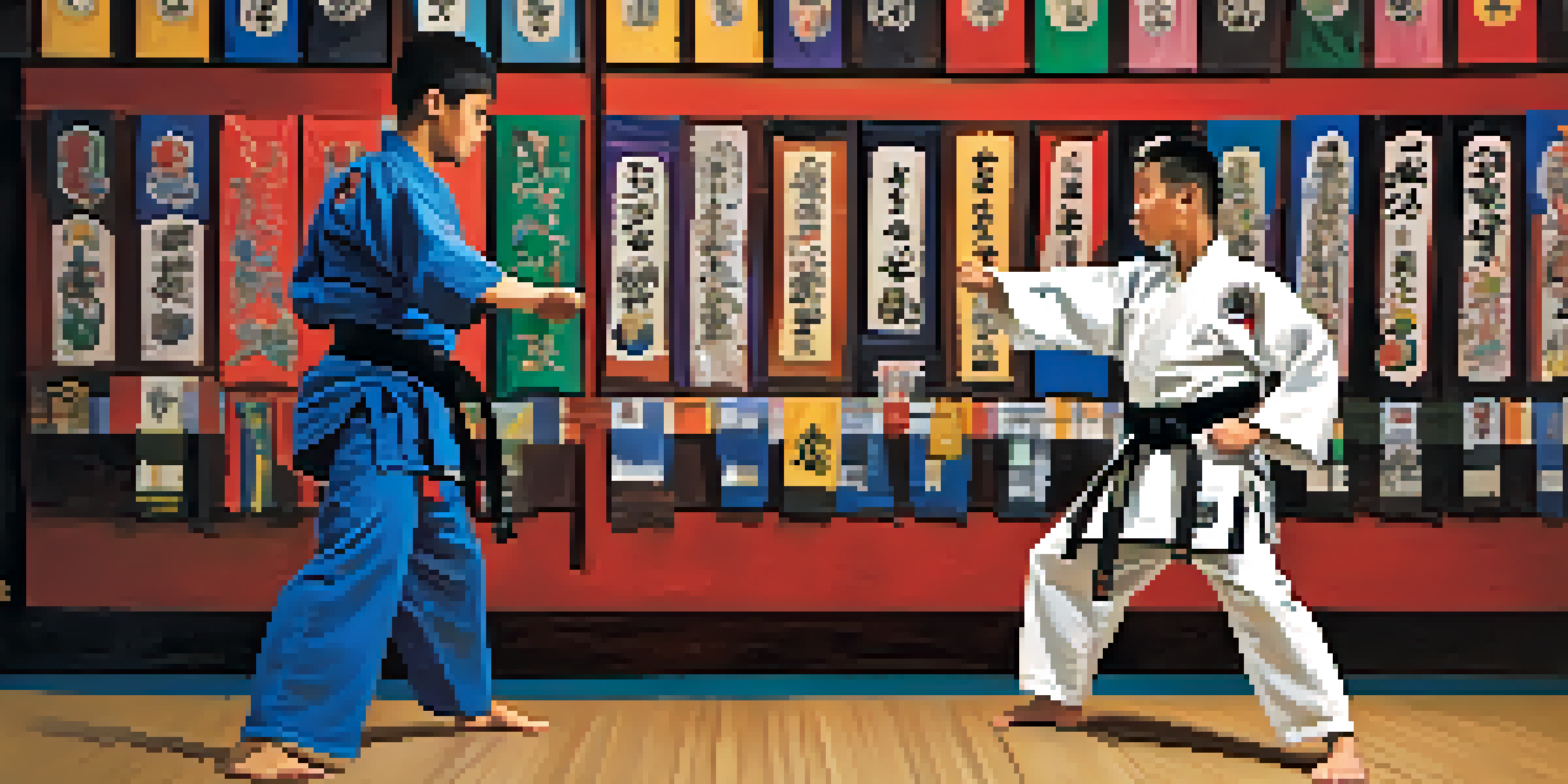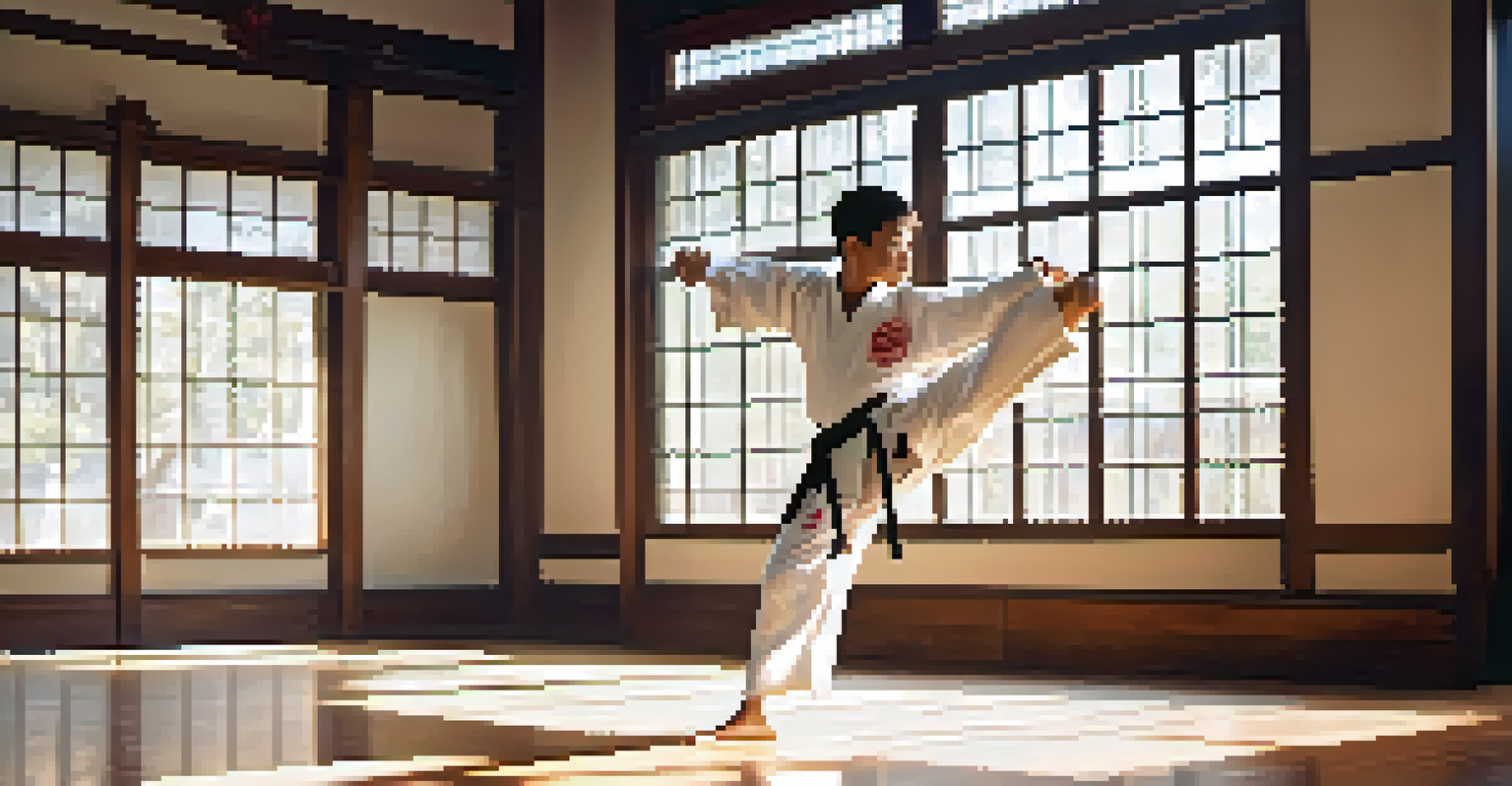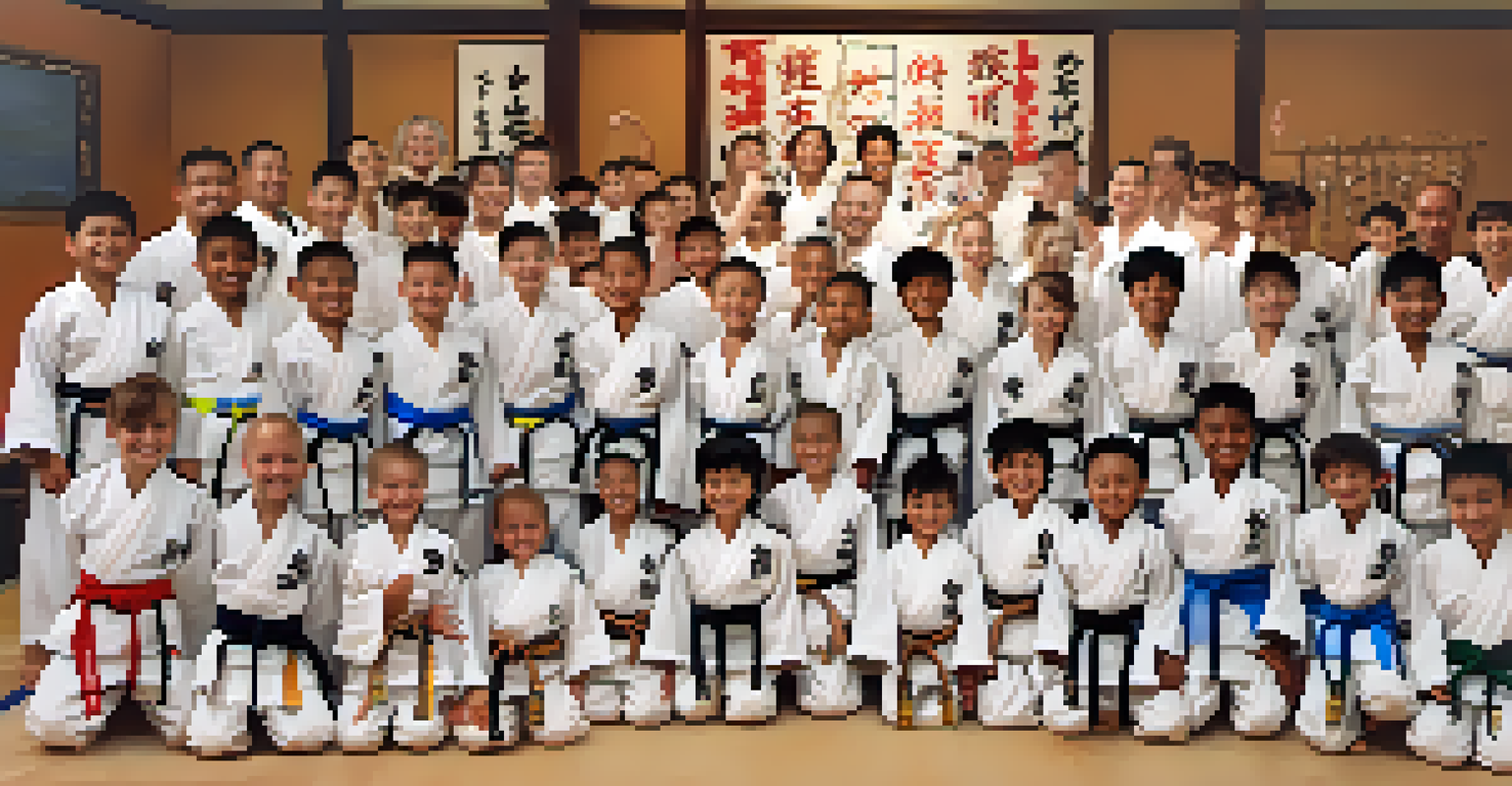Goal Setting in Martial Arts: Empowering Young Leaders

Understanding the Importance of Goal Setting
Goal setting is a crucial aspect of martial arts training, providing a clear direction for practitioners. By establishing specific, measurable objectives, young martial artists can focus their energy and efforts effectively. This approach not only helps in tracking progress but also builds a sense of accomplishment as goals are achieved.
Setting goals is the first step in turning the invisible into the visible.
In martial arts, goals can range from mastering a new technique to earning a higher belt rank. Each milestone serves as a building block, reinforcing discipline and commitment. When young students witness their growth, it encourages them to set even more ambitious goals, fostering a growth mindset.
Moreover, goal setting teaches valuable life skills that extend beyond the dojo. Young martial artists learn to prioritize tasks, manage their time wisely, and overcome obstacles, all of which are essential attributes of effective leaders. Thus, the practice of setting goals becomes a powerful tool for personal development.
Types of Goals in Martial Arts
Goals in martial arts can be categorized into short-term and long-term objectives. Short-term goals might include perfecting a kick or improving sparring techniques, while long-term goals could involve earning a black belt or competing in tournaments. This clear distinction helps students set realistic expectations and celebrate small victories along the way.

Another important type of goal is process-oriented versus outcome-oriented goals. Process goals focus on the journey, such as practicing for a set number of hours each week, while outcome goals are centered on the final result, like winning a championship. Balancing these types of goals can lead to a more fulfilling martial arts experience.
Goal Setting Enhances Focus
Establishing specific and measurable goals helps young martial artists concentrate their efforts and track their progress effectively.
By understanding and utilizing different types of goals, young martial artists can develop a tailored approach to their training. This flexibility enables them to adapt their strategies and maintain motivation, which is vital for long-term success in both martial arts and life.
SMART Goals: A Framework for Success
One effective method of goal setting is the SMART criteria, which stands for Specific, Measurable, Achievable, Relevant, and Time-bound. For example, instead of simply stating, 'I want to get better at karate,' a SMART goal would be, 'I will practice my kata for 30 minutes every day for the next month.' This specificity helps students stay focused and accountable.
Success is the sum of small efforts, repeated day in and day out.
Using the SMART framework encourages young martial artists to think critically about their goals. They learn to assess whether their objectives are realistic and relevant to their overall development. This self-reflection fosters a sense of ownership and responsibility for their progress.
Incorporating SMART goals into martial arts training not only enhances skill development but also instills confidence. As students achieve their well-defined goals, they gain the courage to tackle more significant challenges, reinforcing their leadership qualities both in and out of the dojo.
The Role of Mentorship in Goal Achievement
Mentorship plays a vital role in helping young martial artists achieve their goals. Experienced instructors provide guidance, support, and valuable feedback, helping students refine their techniques and strategies. This relationship fosters a sense of trust and encourages open communication about aspirations and challenges.
A mentor can help break down larger goals into manageable steps, making the path to achievement less overwhelming. For instance, if a student aims to compete in a tournament, the mentor can outline the necessary training, preparation, and mindset needed to succeed. This structured approach makes goal attainment more accessible.
Mentorship Supports Achievement
Experienced mentors provide guidance and break down larger goals into manageable steps, fostering trust and open communication.
Furthermore, positive role models inspire young martial artists to strive for greatness. When students see their mentors achieving their own goals, it motivates them to pursue their ambitions with determination and resilience. This cycle of inspiration and achievement cultivates future leaders within the martial arts community.
Overcoming Challenges in Goal Setting
Setting and pursuing goals in martial arts is not without its challenges. Young practitioners may face setbacks such as injuries, plateaus in progress, or even loss of motivation. Acknowledging these obstacles is crucial, as it allows them to develop coping strategies and resilience.
For instance, if a student struggles with a specific technique, they can learn to seek help from their instructors or peers. This proactive approach not only aids in overcoming the hurdle but also builds teamwork and communication skills, essential traits for future leaders.
Ultimately, teaching students how to face challenges head-on empowers them to turn obstacles into learning experiences. By reframing setbacks as opportunities for growth, young martial artists develop a mindset that enhances their leadership potential both in and out of the dojo.
Celebrating Achievements to Foster Motivation
Celebrating achievements, no matter how small, is essential in the goal-setting process. Recognizing progress boosts motivation and reinforces the value of persistence. Whether it's earning a new belt or successfully executing a technique, celebrating these moments creates a positive atmosphere in the dojo.
Incorporating celebrations can take various forms, such as recognition during class, sharing accomplishments with peers, or even personal rewards. These practices encourage a culture of support and camaraderie, where students are excited to cheer for each other's successes.
Celebrating Success Boosts Motivation
Recognizing achievements, regardless of size, reinforces persistence and encourages a supportive community within the dojo.
Moreover, celebrating achievements teaches young martial artists the importance of gratitude and reflection. By taking a moment to appreciate their hard work, they cultivate a sense of pride that fuels their passion for martial arts and leadership development.
The Lifelong Impact of Goal Setting in Martial Arts
The skills and values learned through goal setting in martial arts extend far beyond the dojo. Young practitioners develop a strong work ethic, discipline, and leadership qualities that serve them well in various aspects of life. From academics to future careers, these traits become foundational elements of their character.
Moreover, the experience of setting and achieving goals fosters confidence that can empower students to take on new challenges. Whether it's public speaking, team projects, or navigating relationships, they are equipped with a mindset that embraces growth and resilience.

Ultimately, the lifelong impact of goal setting in martial arts shapes not just skilled martial artists but well-rounded individuals. As they transition into adulthood, these young leaders carry with them the lessons learned, inspiring others and making a positive difference in their communities.